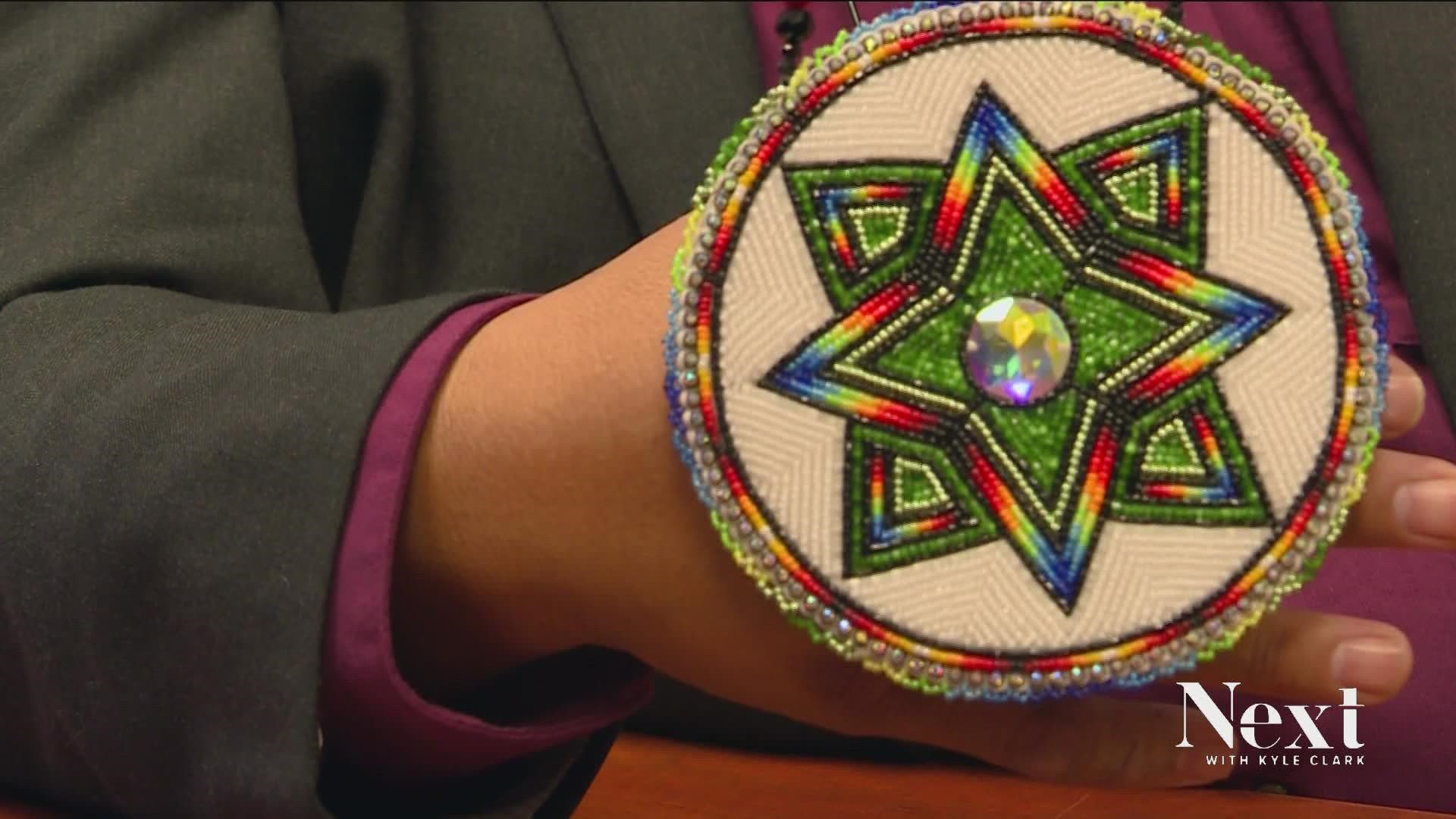DENVER — Arron Julian has barely had time to fill his office in Denver, but perhaps it's a representation of his ability to make quick connections across the state.
"Within my first three days, I was able to make it down to Pueblo, Colorado, and help roll out a new pilot program for the missing indigenous relatives training curriculum," he recalled.
It was announced recently that Julian was appointed as director for the Office of Liaison for Missing and Murdered Relatives, a position that was created as part of a bill passed this past year in the last legislative session.
Julian has been on the job for just around two weeks, and since then has connected with several tribal police departments, as well as worked an active case.
As a member of the Jicarilla Apache Nation, he hopes to help solve cases of missing indigenous people through his own background and understanding of the dynamics between Native American communities and law enforcement.
Already, he believes that the level of receptiveness from families is increasing, as well as a sense of relief.
"Not only did I feel it, it was expressed to me by the tribal council and the members that were there in the community, that it was like everybody took a deep breath," he said.

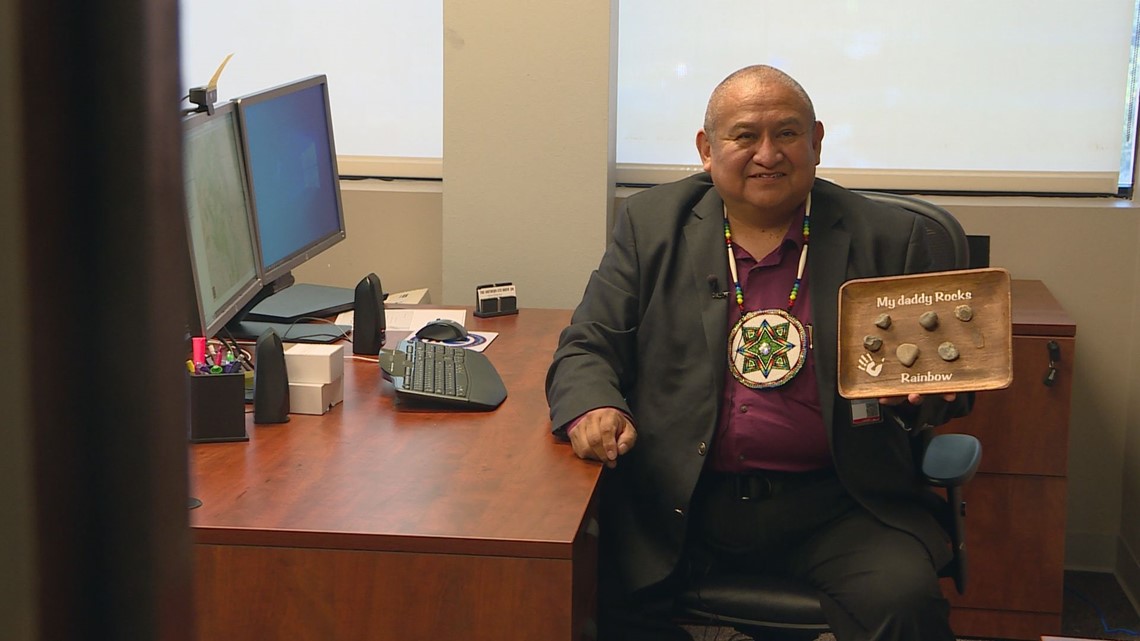
Using connection as a tool
Julian chooses to wear a medallion that is considered traditional to Native American tribes instead of a tie.
"They recognize it immediately," he said of the communities he connects with. "I'm prideful in my background."
He believes his lengthy career investigating MMIR cases and advocating on behalf of families for resolution of their cases helped him qualify for the job.
Alongside more than 30 years in law enforcement, Julian served victims of sexual assault in his role as the sexual assault response team coordinator for the San Carlos Apache Healthcare Corporation, a program he helped start.
He also served time as the police chief for the Bishop Paiute Tribe in California.
"I was very concerned about the victims of sexual crimes and to native communities. So, it was something I pride myself in helping our native communities," he said.
Within his first three days, Julian helped roll out a new pilot program that teaches future police officers about how to best handle cases related to missing indigenous people. If approved, it's a curriculum he says he will be teaching to academies across the state.
"So they have a better understanding of native communities - be more empathetic to our native community," he said.
This is something Julian believes is needed beyond Colorado.
"The native community is always overlooked in many, many occasions. Just like the disparity in what kind of numbers of missing, murdered indigenous relatives are across the United States, it's very inconsistent," he said.
According to the Colorado Bureau of Investigation, there are a total of 12 Missing Indigenous Person entries in NCIC system, though advocates believe that number is much higher.

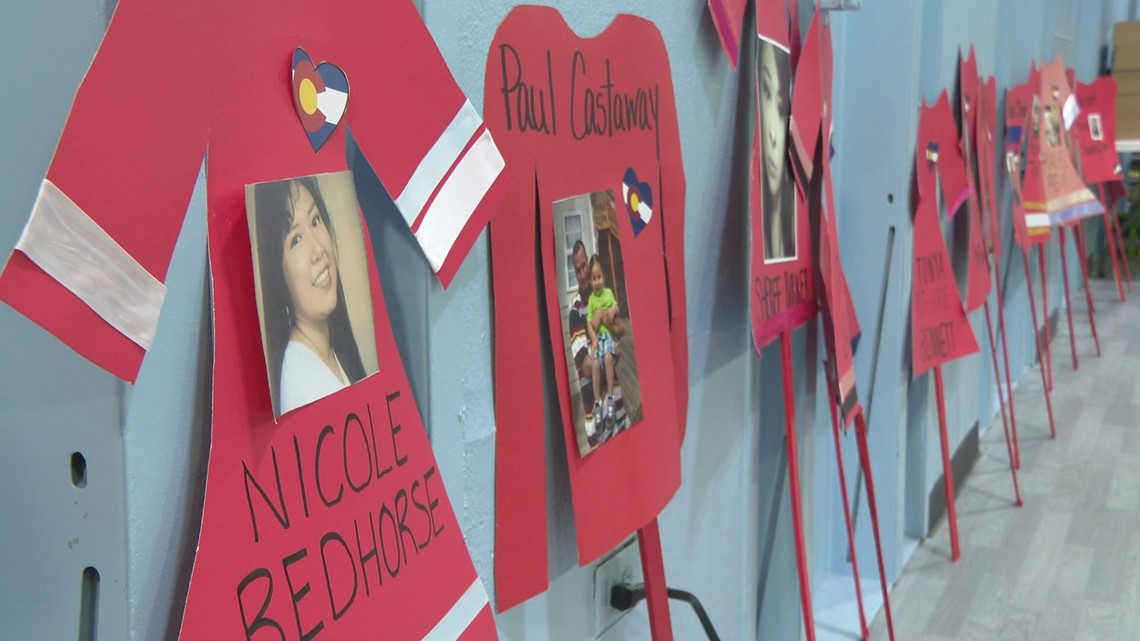
Julian believes the atmosphere and environment that's existed between Native American communities and law enforcement plays a role in cases going unsolved.
"Generally, there's a lot of animosity normally between the community and law enforcement. And being from a small community myself, I understand that that dynamic of it becomes 'us against them,'" he explained. "My ability to understand and see that could have been happening was to negotiate it and quickly bring it together and work as one."
Complex jursidictions also can play a factor.
"They have tribal laws, they have their own law, they have their own police department. Then they have state law...and then they have federal jurisdiction," he said.
Julian believes bringing his understanding of these complexities will help guide both law enforcement and impacted families - in a way, filling a "missing link" between the two sides.
"...recognizing that quickly from both sides is to channel all that information into one focal point," he said.

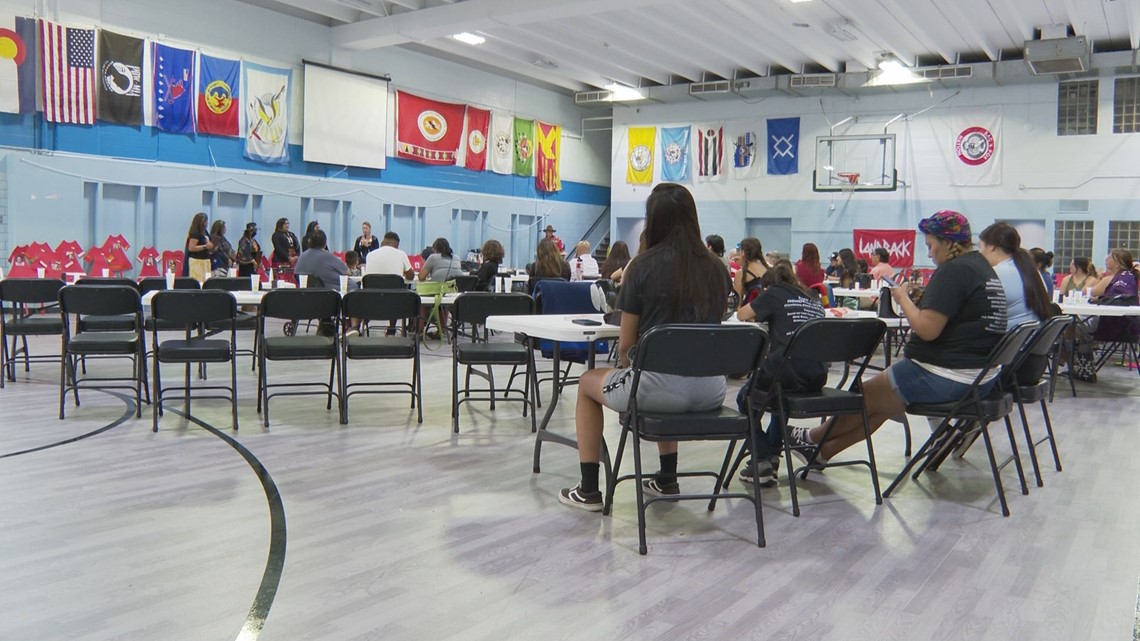
The first case and future of investigations
Just days into the job, Julian responded directly to a case where a missing indigenous woman was reported in the town of Ignacio in southern Colorado.
"And I made contact with local law enforcement, expressed to them that we're a new office and I'm here to help them with whatever resources we can provide to aid in the search," he said.
He believes he was able to bring more resources and act as a liaison between the two sides, noting that he felt families in the area were more receptive to his help.
"Because when somebody goes missing, there's a lot of anxiety, a lot of a lot of emotions. But I'm able to to talk to them and bring that emotion down." Julian said.
Tragically, 28-year-old Raeanna "Nikki" Burch-Woodhull was found dead and a suspect, Luis Raul Valenzuela, was taken into custody. He is being held on suspicion of second-degree murder, according to the Colorado Department of Public Safety.
Despite the outcome, Julian felt his role was able to help progress the investigation, and hopes that families feel that he is an understanding and empathetic source.
"And I'm going to make it successful as I'll do everything I can to bring awareness not only for the missing murdered indigenous relatives, but also to the native community as well, that we're here to help and we're here to do provide the resources," Julian said.

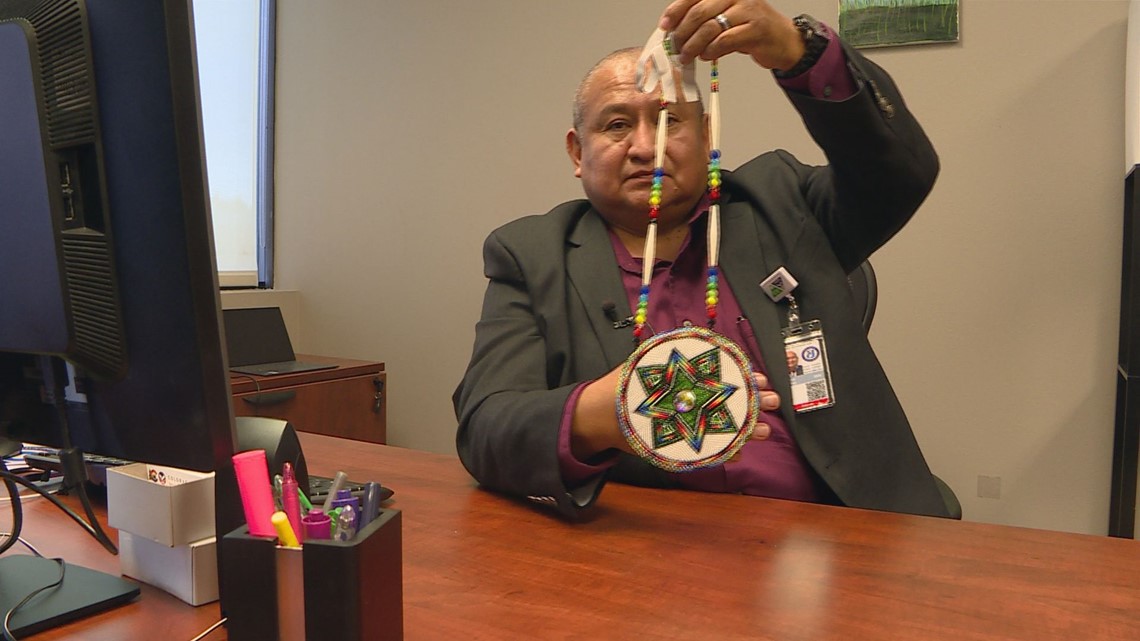
Hope from the community
The office falls under both the Colorado Department of Public Safety and the Colorado Bureau of Investigation, each with their own list of roles and duties.
CBI plans to have a notification system setup specifically for cases involving indigenous people, as well as a dashboard with information on active cases.
"It is imperative that we continue to address this issue so our families can feel safe no matter where they go in this country," said Donna Chrisjohn, who serves on the Denver American Indian Commission. "There isn't a single indigenous person in this country that has not been impacted by this and has not lost someone. Either they've gone missing or they've been murdered or harmed in some way."
Chrisjohn proved instrumental in guiding legislators through how the office should look and function, but is concerned that not enough input was given when selecting a director for the office itself.

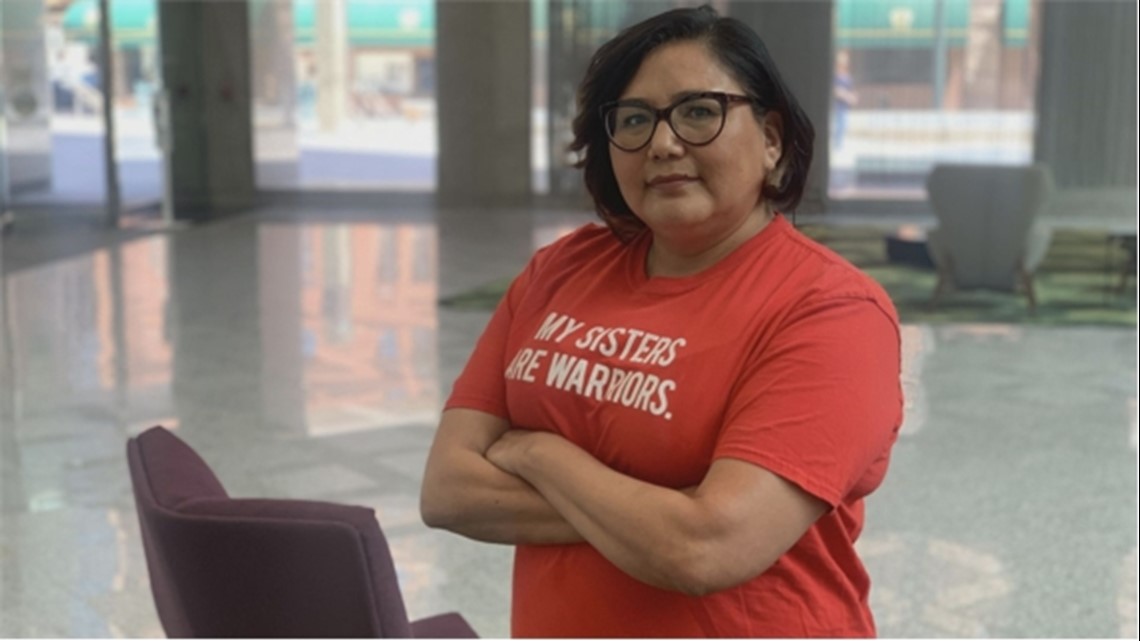
Chrisjohn is a member of the Sicangu Lakota and Dine' tribes.
"We have always been concerned that native preference would be at the forefront of this. So we weren't sure how they were narrowing down candidates," she said. "Then there's always the question of community connection and vetting within the community to know if an individual has has done good work or is connected to community at all."
Chrisjohn added that the commission has not yet met with Julian, but hopes to do so soon, and is hopeful for the future success of the newly formed office.
"It can't just be about a political race or political need or a reelection, whatever that is. Our people should not be in the crossfires of that at all. We should be addressing this out of the goodness of our heart to make a good change in our communities," said Chrisjohn.
SUGGESTED VIDEOS: Next with Kyle Clark

